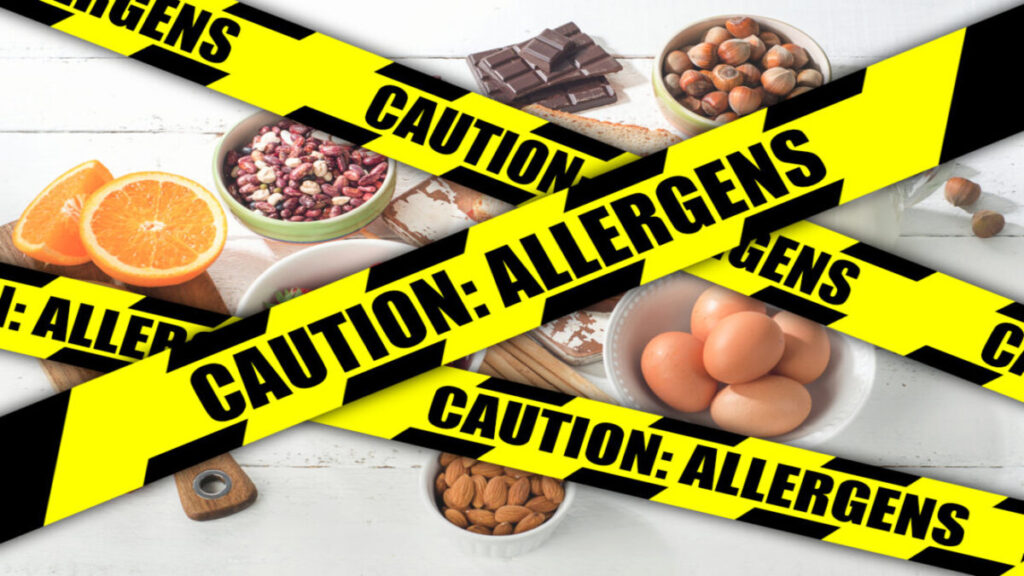A food allergy is an adverse immune response to a food protein. They are distinct from other adverse responses to food, such as food intolerance, pharmacological reactions, and toxin-mediated reactions. A protein in the food is the most common allergic component. These kinds of allergies occur when the body’s immune system mistakenly identifies a protein as harmful. The immune system, thinking the organism (the individual) is under attack, triggers an allergic reaction. These reactions can range from mild to severe. Allergic responses include dermatitis, gastrointestinal and respiratory distress, including such life-threatening anaphylactic responses as biphasic anaphylaxis and vasodilation; these require immediate emergency intervention.
A food allergy can initially be experienced as an itching in the mouth and difficulty swallowing and breathing. Then, during digestion of the food in the stomach and intestines, symptoms such as nausea, vomiting, diarrhea, and abdominal pain can start. When they reach the skin, allergens can induce hives or eczema, and when they reach the airways, they can cause asthma.
Common food allergens include milk, wheat, soy, walnuts, cashews, peanuts, eggs, many food colors and additives.
Treatment consists of either immunotherapy (desensitization) or avoidance, in which the allergic person avoids all forms of contact with the food to which they are allergic.

More from Archives:
Teatment Of Food Allergies Through Diets
- The mainstay of treatment for food allergy is avoidance of the foods that have been identified as allergens. For people who are extremely sensitive, this may involve the total avoidance of any exposure with the allergen, including touching or inhaling the problematic food as well as touching any surfaces that may have come into contact with it.
- If the food is accidentally ingested and a systemic reaction (anaphylaxis) occurs, then immediate medical treatment would be necessary.
- The diet otherwise remains normal with adequate amounts of calories, proteins (identified non allergic), fat, minerals and vitamins as per the requirements of age, sex, and physiological condition to sustain life processes.